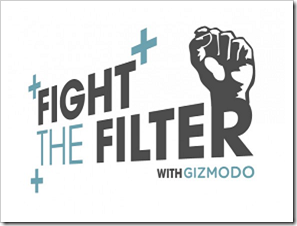Gizmodo has a look at the proposed compulsory Australian Internet Filter [^] proposed by the Federal Government. The article has a look at how filtering systems work – either by IP address, domain name or specific pages. The story is a good primer on the mechanics of web filtering, and interestingly it includes a brief description of how these filters can be easily by-passed.
All of this without even discussing the ramifications of the black-list being secret. Tied to this is the fact that there are already falsely blocked sites [^] on the list without a process being in place for a review.
One Gizmodo commenter points out that the education sector has plenty of experience in filtering, with little success, but no-one from that area has been consulted. The education sector is one group with a high degree of control over physical security, the ability to lockdown the operating system and access rights, and a supposedly “inexperienced” user-base up against trained professionals. How can the Government hope to improve on this set of circumstances?
With an election pending and the obvious technical difficulties the filter has been deferred [^] for a year.



Balance in Copyright
Copyright is the right to control the copying or the exploitation of a creative work. This right is designed to ensure that the creator is compensated the effort they put into creating a piece of music, literature or other ‘creative’ work. It is right that they are able to protect this right under the law, so that they have an incentive to create; a benefit to society.
Dave Post on the Volokh Conspiracy looks at the downside of extending the length of time that authors rights are protected. In The High Cost of Copyright he looks at why recently discovered jazz recordings [^] from the 1930s and 40s may never be heard. While Walter Olson at Overlawyered talks about the murky area where the creator can no longer be traced [^]. The threat of massive fines means that rather than being reproduced, or reused, and saved these items may be lost to society.
In other words, there is no point protecting something so much that you end up suffocating the very thing that you are trying to save. We need to find a balance between protecting the creator and ensuring that society has the access to material that it requires.